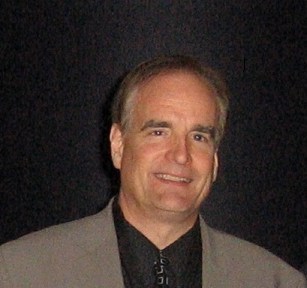|
|
|
First, does the Earth need saving?
We are living on a beautiful planet but unfortunately, if the over six billion members of the human race all lived like we in the developed countries live, well, there'd be more problems than we already have.
|
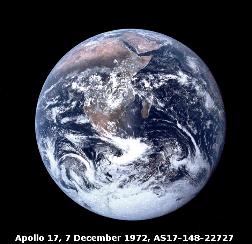 |
The environmental movement had been gaining momentum for about a decade when the crew of Apollo17 took this photo.
By using it as an icon,
their next Earth Day was a major event.
photo available as 2048 X 2041 jpg (641 K) |
|
So,
by giving us a place
from which to look back at the earth,
the moon began saving the earth.
photo available as 2400X 2400 jpg (394 K) |
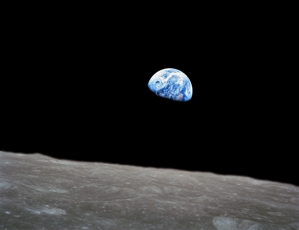 |
|
Just as St. Louis, here, served as a gateway to the American West, in the long term, the moon will serve as a gateway to the solar system. All the resources of all the objects of the solar system, all the power of the sun, await us. |
[ Editor's Note: The following comments are my own, adapted from Gregg's talk ]
|
|
Bob Perry, Chris Nobbe, and Bert Sharpe
were a small part of the one hundred member audience
for Gregg's talk.
|
 |
|
Quite a few of the other members of the audience knew Gregg from the Google Lunar X-Prize and the X-Prize Foundation, especially the Ansari X-Prize for the suborbital hop into space, the $10 million prize won by Mojave Aerospace Ventures, a subsidiary of Scaled Composites.
|
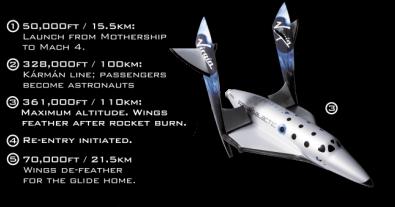 |
Now that suborbital hops,
with about six minutes of zero g,
have been accomplished
by a commercial organization,
Virgin Galactic has been founded by Richard Branson, and should
to be offering the best ride off Earth about a year after the rollout of Spaceship Two.
illustration adapted from
Virgin Galactic press kit
|
|
Tourism will probably push space development like gamers have pushed the personal computer. A few years from now there may be several commercial space hotels. Truly, the view from LEO (low earth orbit) is awe inspiring - looking back at Earth and out into "the final frontier". And there is playing or even working in micro gravity.
Even though NASA's charter emphasizes development of new technologies but not direct help for space entrepreneurs and space colonists, several areas of space-based commercial endeavors are quite successful. |
- satellites looking back at earth
- crop management
- disaster management
- weather monitoring
- other data from satellites
|
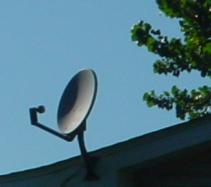 |
|
OK, back to the original question - how can we save the earth from the serious problems of global warming, pollution, and the energy crisis?
And make real money in the process? With golden sunshine and silver moondust! |
OK, OK, I'm exaggerating - white sunshine and gray moon dust and a lot of venture capital from patient, optimistic venture capitalists. We have to build the infrastructure to build the construction shack to build solar power satellites and build the power receivers (microwave or laser) on earth. By the time the fourth satellite is built, the sale of power from the first three will have paid off the mortgage. And then, all the profit can go into expanding the infrastructure and building more moneymakers using lunar and even asteroidal and cometary resources and all that sunshine. |
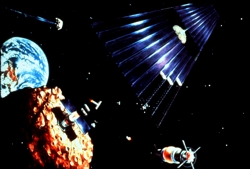 |
|
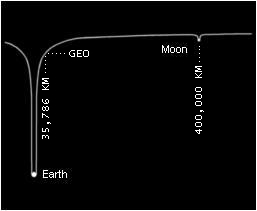 |
The reason we're talking about lunar and later asteroid and comet resources is $imple - boosting one pound to LEO with the $pace $huttle co$t$ about $5,000. Since most of that pound will be used to get a few ounces to geosynchronous earth orbit, boosting one pound to GEO costs about $23,000. Once we spend enough to buld an outpost on the moon with fabrication and launching facilities, launching from the moon is much easier, by a factor of about 22, as illustrated in this energy versus distance diagram. And with the moon having no atmosphere, launching can be done with mass drivers instead of rockets. Unfortunately, climbing down into earth's gravity well and circularizing an orbit takes energy and rockets will be needed for that. |
|
Now for some links:
- Gregg has posted videos on YouTube on the material from this and some of his other talks:
- Gerard K. O'Neill (1927 – 1992), founder of the Space Studies Institute
- interview (1979)
"I see three possibilities for a civilization that gets to about our stage. One is stagnation, one is annihilation, and the third is expansion out into space through space colonies."
- on solar power satellites
- "The Moon Then Mars" speech by Stephen Hawking at NASA's 50th anniversary
"The Moon could be a base for travel to the rest of the solar system."
- Beware of planetary chauvinism
- The Club of Rome has dire predictions for humanity's future, but they are operating with at least one erroneous assumption, that we stay on earth and do not access the energy and material resources of the solar system.
- The Moon Society, The National Space Society, and The Mars Society are optimistic about our future in space. And so are other pro space organizatins.
|
If God had wanted us to go into space,
He would have given us an easy first step, like the Moon.
Krafft Arnold Ehricke
|
|


